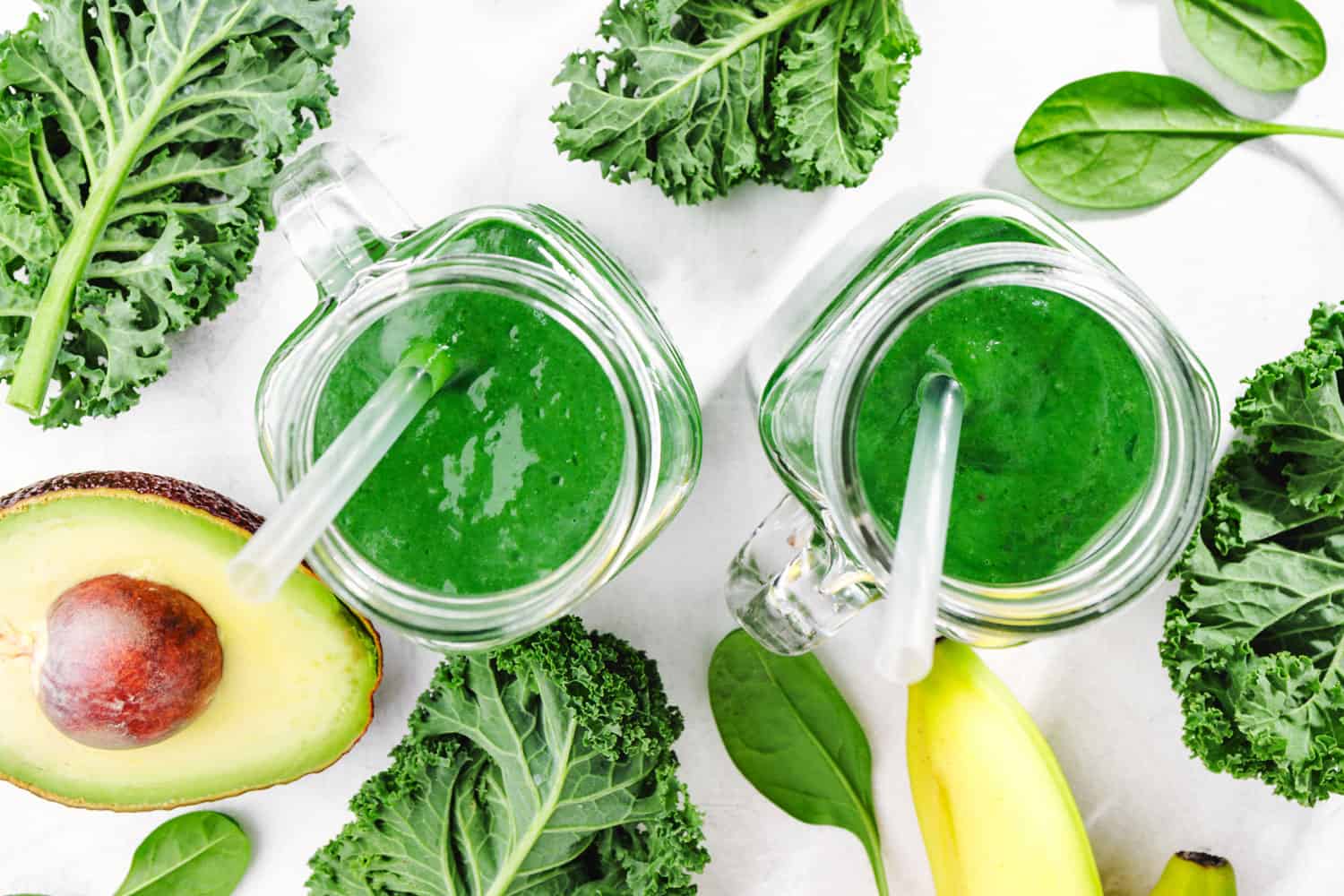In today’s modern world filled with quick, fast, and processed food options, who doesn’t want to eat the most nutrient-dense foods available? Spirulina is a blue-green algae and is believed to be one of the oldest life forms on the planet. Indeed, it was used by the Aztecs to boost endurance.
These days, it’s a popular dietary supplement due to its impressive nutritional profile. And there’s a good reason. Take a look at some of the reported benefits of spirulina and why you need it.
Spirulina Contains Numerous Nutrients
This sea algae is known as cyanobacteria. These are single-celled microorganisms that also produce energy from the sun via photosynthesis. Despite being tiny, this algae is jam-packed with nutrients.
A single tablespoon (7 grams) of dried powder contains:
-
Protein: 4 grams
-
Vitamin B1 (thiamine): 11% of the RDA
-
Copper: 21% of the RDA
-
Vitamin B2 (riboflavin): 15% of the RDA
-
Vitamin B3 (niacin): 4% of the RDA
-
Iron: 11% of the RDA
There are also decent amounts of magnesium, potassium, and manganese, as well as small amounts of just about every other nutrient that you need in spirulina. For more tips on supplements, visit Wellness Nova.
Powerful Plant-Based Protein
This algae represents an important staple diet in humans and has been used as a source of protein and vitamin supplements in humans without any significant side effects. Apart from the high (up to 70%) content of protein, it also contains vitamins, especially B12 and provitamin A (β-carotenes), and minerals, especially iron.
It is also rich in phenolic acids, tocopherols, and γ-linolenic acid. Spirulina lacks cellulose cell walls and therefore can be easily digested. Spirulina contains a powerful plant-based protein called phycocyanin.
Research shows that this powerhouse contains anti-inflammatory, antioxidant, pain-relieving, and brain-protecting properties.
Anti-Cancer Properties
Phycocyanin, the pigment that gives spirulina its blue-green pigment, has been shown to block tumor growth, kill cancer cells, and reduce inflammation in the body. Not surprisingly, this is being researched as a potential treatment for cancer. Many antioxidants in spirulina also have anti-inflammatory effects on the body.
Can Reduce the Body’s Absorption of Cholesterol
The protein in spirulina has been shown to reduce the body’s absorption of cholesterol, consequently lowering overall levels of cholesterol. This helps to keep your arteries clear, thus reducing the risk of strokes and heart attacks due to lower chances of developing blood clots.
Reduces Triglyceride Levels
Triglycerides are harmful fats in your blood that can lead to the hardening of arteries, heightening your chances of pancreatitis, diabetes, and heart disease. Plant-based protein phycocyanin found in spirulina reduces triglyceride levels.
Spirulina also increases nitric oxide levels in the body, allowing blood vessels to relax. This in turn has been shown to reduce blood pressure, consequently lowering your risk of a heart attack.
Manage diabetes
According to Medical News Today, spirulina shows promise as a way to manage the symptoms of diabetes. But more research is needed before doctors can recommend it.
A 2018 review study found that spirulina supplementation significantly lowered people’s fasting blood glucose levels. High fasting blood sugar is a common problem in people with diabetes type 1 and 2. This suggests that spirulina supplements may help people control diabetes.
These results suggest that spirulina shows promise as a food to support type 2 diabetes management.
A 2017 animal study supports the idea that spirulina may help manage diabetes. In this study, the researchers gave mice with type 1 diabetes spirulina extract orally. As a result, the mice showed:
- lower blood sugar
- higher insulin levels
- improved liver enzyme markers
The researchers note that the antioxidant effects of spirulina may be helpful in treating type 1 diabetes.
Boosts Your Immune System
This superfood contains a plethora of minerals, nutrients, and vitamins, essential for maintaining a strong immune system, such as vitamins E, C, and B6. Research has shown that spirulina also increases the number of white blood cells and antibodies that fight viruses and diseases inside the body.
Vitamin B12
It’s often erroneously claimed that spirulina is a plant-based source of vitamin B12. However, this does not appear to be true. It contains pseudovitamin B12, which has not been shown to be effective in humans. This means that people on plant-based diets, where a vitamin B12 deficiency is common, should make sure to supplement from another source.
 Boost your metabolism
Boost your metabolism
Taking spirulina may help boost a person’s metabolism. A higher metabolic rate may make a person feel as if they have more energy. It may also increase the number of calories they burn each day, which may aid in weight loss.
The lowdown
Spirulina is a tiny blue-green alga jam-packed with health-inducing properties. It can suppress oxidation, reduce blood pressure, and lower blood sugar levels, all while providing a plant-based protein that is comparable to eggs. While more research is needed to determine its effects on humans, it is definitely worthy of its superfood status.
Read More
Would you like to read more on superfoods? What are they, and can they increase your longevity?
References
1. Spirulina in Clinical Practice: Evidence-Based Human Applications. P. D. Karkos, 1 ,* S. C. Leong, 1 C. D. Karkos, 2 N. Sivaji, 1 and D. A. Assimakopoulos https://www.ncbi.nlm.nih.gov/pmc/articles/PMC3136577/
2. Springer: The Effect of Ultrasonificated Extracts of Spirulina maxima on the Anticancer Activity: Sung-Ho Oh: Juhee Ahn, Do-Hyung Kang & Hyeon-Yong Lee, https://link.springer.com/article/10.1007%2Fs10126-010-9282-2
3. Konícková R, Vanková K, Vaníková J, et al. Anti-cancer effects of blue-green alga Spirulina platensis, a natural source of bilirubin-like tetrapyrrolic compounds. Ann Hepatol. 2014;13(2):273-283.
https://www.medigraphic.com/cgi-bin/new/resumenI.cgi?IDREVISTA=&IDARTICULO=58275&IDPUBLICACION=5837, https://www.medigraphic.com/cgi-bin/new/resumenI.cgi?IDREVISTA=&IDARTICULO=58275&IDPUBLICACION=5837
4. Quantifying the effects of spirulina supplementation on plasma lipid and glucose concentrations, body weight, and blood pressure. Haohai Huang,1 Dan Liao,2 Rong Pu,3 and Yejia Cui3: https://www.ncbi.nlm.nih.gov/pmc/articles/PMC6241722/
5. Spirulina in Clinical Practice: Evidence-Based Human Applications. P. D. Karkos,1 S. C. Leong,1 C. D. Karkos,2 N. Sivaji,1 and D. A. Assimakopoulos3, https://www.ncbi.nlm.nih.gov/pmc/articles/PMC3136577/




 Boost your metabolism
Boost your metabolism![women [longevity live]](https://longevitylive.com/wp-content/uploads/2020/01/photo-of-women-walking-down-the-street-1116984-100x100.jpg)










